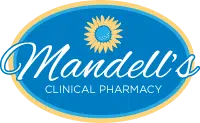What Is Ovarian Hyperstimulation Syndrome?
Hormone levels regularly fluctuate throughout a menstrual cycle. During fertility treatments like in vitro fertilization, hormone levels can vary even more drastically and potentially lead to a complication called ovarian hyperstimulation syndrome (OHSS).
Learn what can cause this syndrome, symptoms to watch for, and how to treat it.
What is Ovarian Hyperstimulation Syndrome?
Ovarian hyperstimulation syndrome is the body’s excessive response to medications that stimulate egg growth. As numerous follicles grow and estradiol levels increase, fluid can build up in the ovaries and abdomen and start causing OHSS symptoms.
It’s more common for injectable medications like human chorionic gonadotropin (HCG) to cause OHSS than oral medications like clomiphene. Other risk factors include:
- Polycystic ovary syndrome.
- A large number of follicles.
- Being under 35.
OHSS Symptoms
These symptoms can vary in each person, ranging from mild to severe:
- Mild to Moderate Symptoms: Nausea, vomiting, diarrhea, mild to moderate abdominal pain, bloating, tenderness near your ovaries, dark concentrated urine.
- Severe Symptoms: Shortness of breath, blood clots, severe abdominal pain, severe nausea and vomiting, sudden weight gain, decreased urination, dark concentrated urine, tight or enlarged abdomen.
About one-third of women will experience mild ovarian hyperstimulation syndrome during ovarian stimulation for IVF. Moderate and severe symptoms occur less frequently. Your daily monitoring helps prevent hyperstimulation from getting out of control.
OHSS symptoms usually start within a few days of ovulation and resolve within two weeks. A positive pregnancy test may mean symptoms for two to three weeks.
What To Do If You Have OHSS Symptoms
If you’re undergoing fertility treatments, it’s important to tell your doctor if you’re experiencing any OHSS symptoms. Even if they’re mild, your doctor will want to monitor them if they worsen and adjust your dose of medication accordingly.
Your doctor will likely perform a physical exam, ultrasound, and blood test to confirm an accurate diagnosis.
Shortness of breath or pain in your legs may be signs of ovarian hyperstimulation syndrome complications and a more urgent health situation. Contact your doctor and seek medical attention right away. OHSS should be taken seriously because if left unattended it can lead to an emergency situation. Listen to your body and make sure you report any symptoms to your nurse or doctor during monitoring.
Treatment Options for Ovarian Hyperstimulation Syndrome
Luckily, mild cases of OHSS resolve on their own, but these treatment and monitoring strategies will help keep OHSS symptoms in check.
- Increase your fluid intake.
- Measure your weight, waist, and urine output daily for any significant changes.
- Ask your doctor about blood tests to monitor dehydration or a possible electrolyte imbalance.
Severe cases of OHSS may require hospitalization or more intense treatment like IV fluids or medications to help suppress ovarian activity. If complications arise, you may need surgery due to a ruptured ovarian cyst or additional hospitalization for liver or lung issues.
Navigate the Medication Landscape with Mandell’s
Mandell’s Clinical Pharmacy is here to help you understand the array of specialty fertility medications and ensure you know the benefits and potential side effects. Learn about the top fertility medications.
Have a specific question? Go ahead and contact us. Our team is always here to help.
